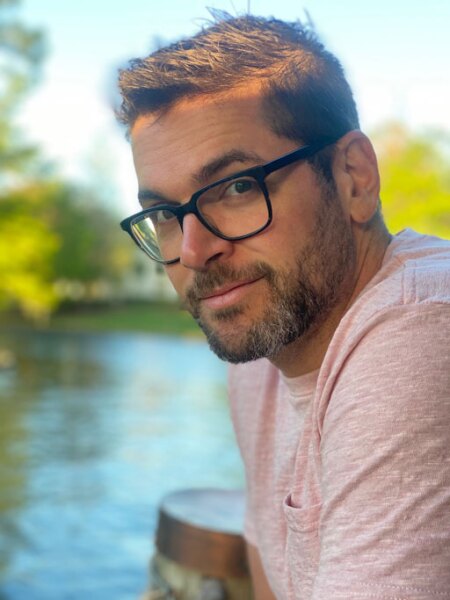Stephen Pantano has joined ULI Impact Lab as a senior fellow. Most recently, Pantano was the vice president of research and special projects at Rewiring America for three years. He previously served as the chief research officer at the Washington, D.C.-based CLASP (formerly the Collaborative Labeling and Appliance Standards Program), where he established the global non-profit organization as a thought leader in energy efficiency through technological innovation and policy advancement. Additionally, he worked at ICF International, leading the development of Energy Star specifications for various electronic devices to enhance energy efficiency.
Urban Land recently sat down with Pantano to discuss the state of the industry and explore how he will support ULI’s membership, especially as energy usage increasingly drives conversations about the built environment.
Urban Land: Can you describe your role as senior fellow for market transformation within the ULI Impact Lab and the opportunities you see to connect sustainability with housing and market outcomes?
Stephen Pantano: I have spent nearly two decades of my career working on energy-related issues in the built environment. I began with ICF, where I worked as a technical consultant to the Energy Star program for various appliances, including televisions, heating and cooling systems, refrigerators, and others. After that, I joined CLASP, where I continued to work on energy efficiency, particularly in the appliance sector and the built environment. I spent a decade working with international governments on standards and voluntary programs to promote energy efficiency. I helped to launch a program to promote energy access initiatives in Sub-Saharan Africa. Most recently, I worked at Rewiring America, focusing on electrification as a means of decarbonization. This adds up to nearly 20 years in the field, primarily with nonprofits, collaborating with governments and the private sector on policy and market transformation programs. My background is in mechanical engineering and business; I began my career as an engineer on the Space Shuttle program and have extensive experience in product testing, which has contributed to my combination of technical, business, and policy expertise.
UL: What kind of impact do you think the work you’ve done has already had?
Pantano: The organizations I’ve worked for have all made some meaningful change in the world, and have helped to advance policy discussions and high-level strategies for governments and for the private sector in a bunch of different countries. Mostly I focus on trying to use as much evidence as possible to support my work, so, being really data driven and doing lots of stakeholder consultation, from users of products to developers of products, to policymakers and regulators who have some intention around those same sets of products, all of which I think will be, you know, relevant to driving progress in the commercial real estate sector.
UL: Can you describe your role as senior fellow for market transformation within the ULI Impact Lab and the opportunities you see to connect sustainability with housing and market outcomes?
Pantano: I serve as a part-time senior fellow for market transformation within the ULI Impact Lab, a new initiative led by ULI Chief Impact Officer Aimee Witteman and her team. My role involves developing a strategic vision for research across the centers, starting with the Lewis Center, while collaborating with other centers. My background at Rewiring America and CLASP has primarily been in research and data science, where I developed and implemented market transformation programs and strategies that I hope can benefit ULI and its members.
The key goal is to drive market action by identifying the best opportunities to leverage work already done, such as the Net Zero Imperative cohorts and various District Council efforts focused on sustainability. This involves replicating and scaling successful initiatives with partners nationally and internationally. While the vision is clear, how it translates into practice is still being determined, and I have much to learn in this new area. It’s a fresh set of stakeholders, policy considerations, and opportunities, and I’m eager to meet everyone and gain insights to guide our efforts in the Impact Lab.
UL: What are the key market drivers and opportunities for decarbonization and sustainability and commercial real estate, especially concerning energy cost, volatility, resilience, risks, and health and well wellness considerations?
Pantano: The key to decarbonization and sustainability in commercial real estate lies in aligning the diverse values of property owners, tenants, and communities. Everyone perceives value differently in well-designed spaces, influenced by principles like energy efficiency, air quality, resilience, and walkability.
Our task is to uncover how ULI members and industry experts define this value and identify common ground. For tenants, affordability—both energy and housing—is crucial, while developers and property owners may focus more on sustainability, asset values, and predictable operational costs. Ultimately, it’s about finding connections and aligning stakeholders toward a shared sustainability vision. Though it won’t be easy, there are successful examples in ULI’s history that we can replicate and scale.
UL: How has your work with multi-stakeholder initiatives influenced your approach to driving sustainability?
Pantano: My experience with multi-stakeholder initiatives has greatly influenced my approach to driving sustainability. When I first joined ICF and worked on the Energy Star program, I had to present a vision to senior technical experts in Silicon Valley about a new Energy Star specification for data center equipment. I was quite young and knew I didn’t have more expertise than they did. So, I opened with, ‘We’re all going to learn together; I’m here to be informed by you and to work collaboratively.’
That simple acknowledgment broke the tension in the room and fostered a more open, constructive dialogue. Since then, I’ve adopted this listening-first approach in various contexts globally—gathering perspectives, synthesizing information, and creating projects that many can support. I’m optimistic that I can apply this same collaborative strategy here.
UL: How do you envision connecting your sustainability work with ULI’s focus areas, including housing capital markets and advisory services?
Pantano: I think it’s true that everything is related to everything. So you can’t talk about sustainability without finance, without affordability—all of these topics are interrelated. This understanding emphasizes the need to align values among developers, tenants, building owners, and other stakeholders toward a common goal that resonates with their economic, environmental, or social interests.
I’m excited to learn more at the upcoming Fall meeting and engage with members to uncover opportunities. I’ve been consulting with the team at the Lewis Center to understand our existing resources and history, which will help shape our future initiatives. We have considerable member consultations ahead to determine which projects to advance and scale within the new vision.
UL: How do you plan to advance the Lewis Center’s focus on decarbonization, resilience, healthy places, and Greenprint—and what new opportunities do you see to scale and replicate this work across ULI’s global network?
Pantano: To advance our focus, we need to scale strategies with significant market impact, determined through data analysis. By evaluating sustainability factors in the built environment, we can identify the most effective actions to implement. Among the top strategies, we’ll select those with the best chance of success based on market buy-in, policy support, and funding. It’s essential to balance theoretical potential with practical execution, engaging stakeholders, and building coalitions to turn our plans into actionable projects.
Related:






